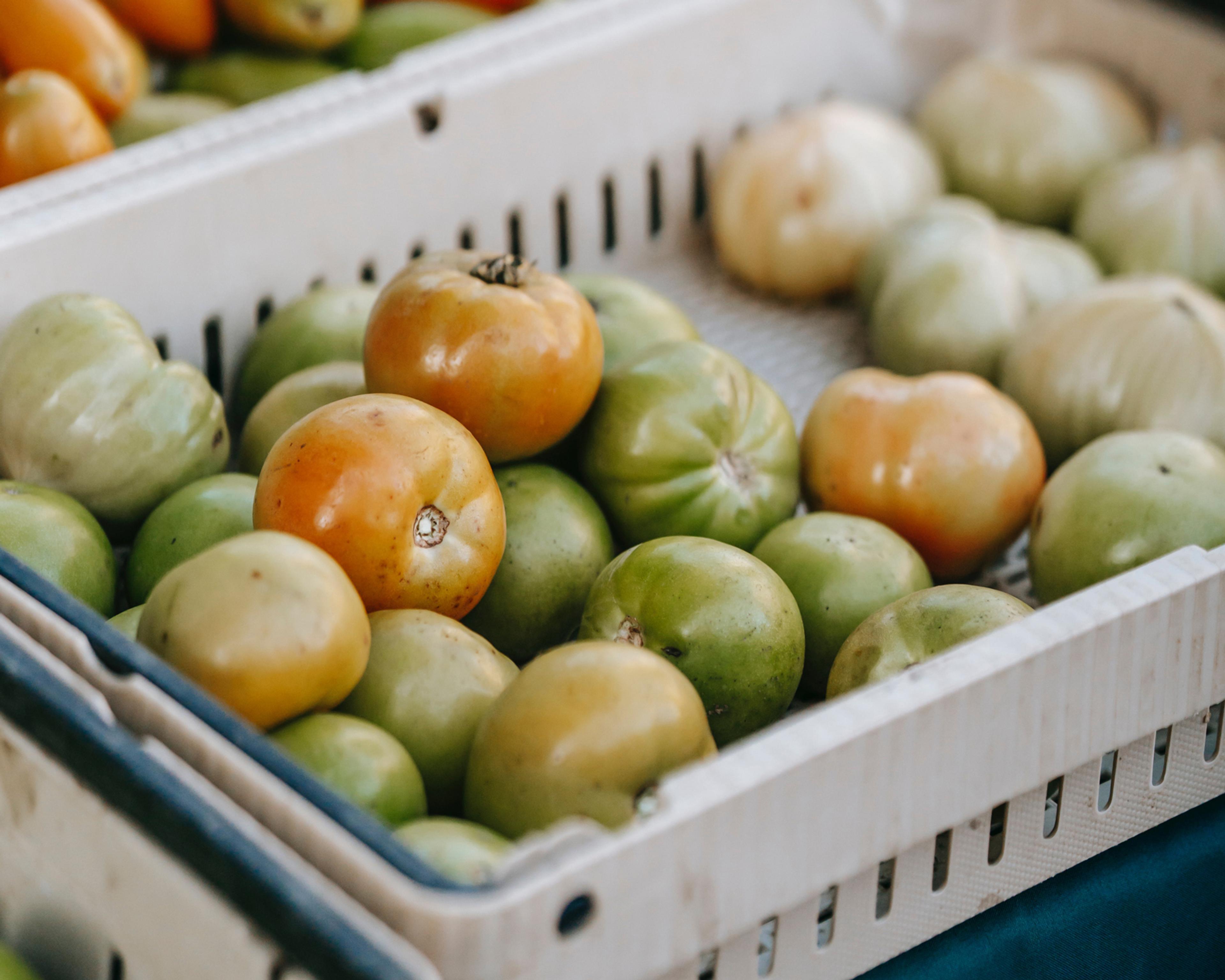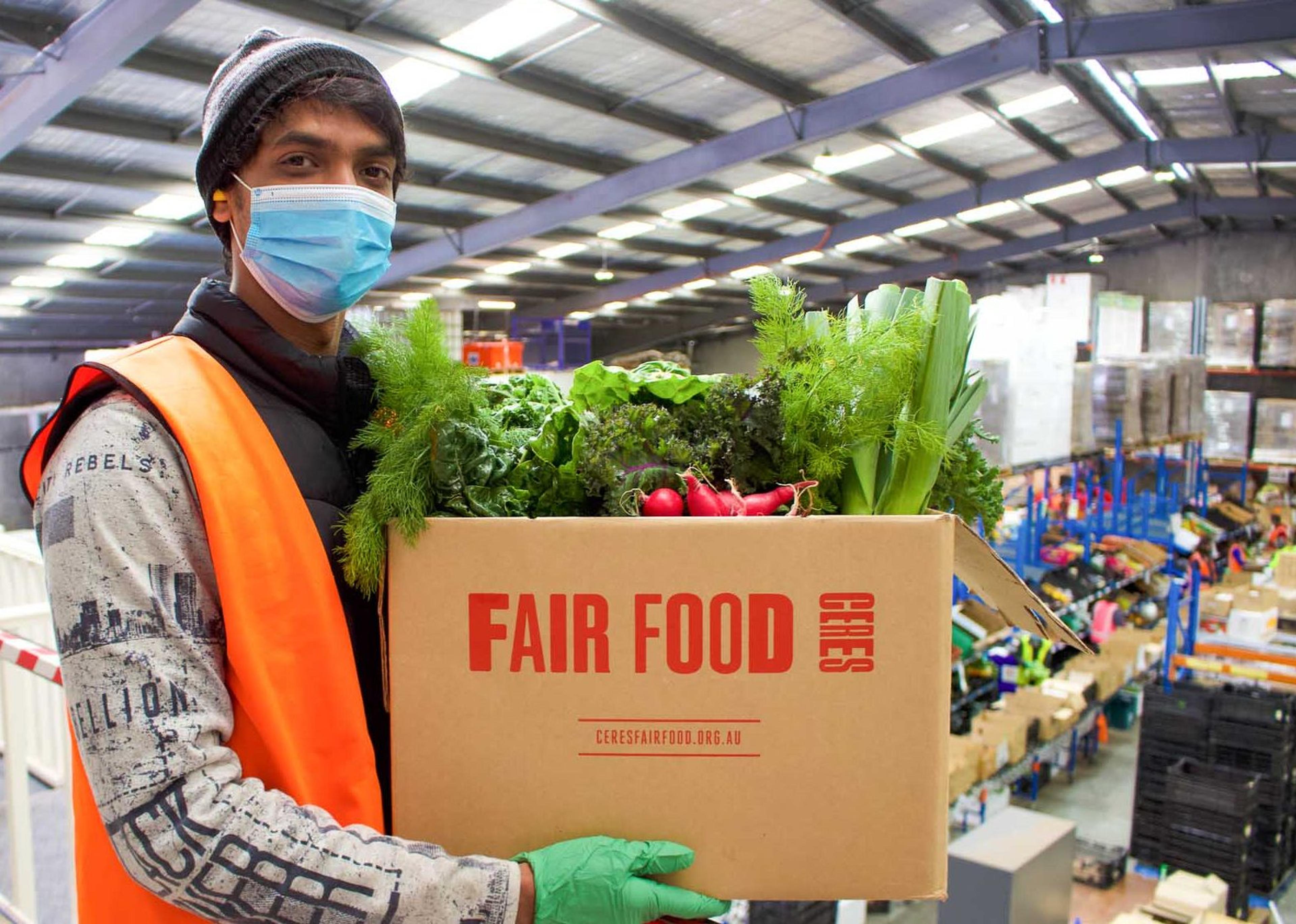Lessons From a Supermarket Tomato
In the 80’s and 90’s Coles and Woolies’ dominated the grocery market and fruit and veg got very boring.
Epitomised by the industrial tomato – tasteless, pale, uniform, rock hard with incredible shelf life it was the supermarket produce buyer’s holy grail.
Reducing tomatoes, potatoes, apples etc to generic commodities meant the big supermarkets could buy from whoever grew them the cheapest.
Predictably farmers’ earned less. To stay on the land they either got bigger and cheaper or got out.
In these two decades Australia lost a generation of farmers. Kids growing up on farms saw what their parents were facing and opted for university or got a trade.
When I started buying produce for CERES in the early 2000’s most of the farmers I was dealing with were in their 60’s.
However, the tasteless industrial tomato left a tiny crack for the farmers who’d been left behind to slip through.
There will always be people who are passionate about food with flavour, that’s grown naturally and has a story, and there will always be farmers who love to grow that food and tell these stories.
Helping passionate eaters and farmers find each other were little online box schemes, front porch food co-ops and farmers markets in what became known as the local food movement
As it grew through the 2010’s the lost generation of farmers was slowly restored by a group of new young, mostly women, market gardeners, free range egg farmers, holistic graziers, apiarists and mushroom growers.
With them came food of such incredible variety and flavour, grown with heart and ethics that the supermarkets were forced to expand their produce and grocery sections and at least talk a bit about the farmers who grew their food.
And then came the pandemic….
At CERES Fair Food thousands of locked down customers desperate for grocery deliveries tripled our orders overnight – our 175 farmers and makers worked long, long hours to keep up with the demand.
The pattern was repeated across Australia as besieged local farmers, food hubs and box schemes desperately added workers, cultivated new paddocks, built packing sheds to help feed all the people stuck at home.
Customers sent messages with the most heartfelt thanks, delighted by this incredible food. The consensus was that now people knew local food they’d never go back.
Then the pandemic ended, the cost of living crisis hit and the customers just disappeared.
It’s was the perfect storm and it was brutal.
At Fair Food the hardest part was laying off the new staff who had worked through lockdowns masked up on the packing line or driving our vans for the better part of two years.
For other food hubs and farmers markets the drop in customer numbers below pre-COVID levels would mean going out of business.
Less than a year after the pandemic ended local food pioneers such as the Abbotsford Farmers Market, Brisbane’s Food Connect and Sydney’s Your Food Collective had closed .
Others followed putting the pressure on small farmers who relied on them to connect with their customers.
Farmers and food hubs I talk to lately seem to be just hanging in there.
Sustainable Table has been taking the pulse of the sector and CEO Jade Miles says the cost of living crisis has put the great majority of regenerative farms and supporting food distribution enterprises under severe financial pressure.
The danger is we will lose this new generation of farmers and many of the food hubs, farmers markets and online box schemes that connect them to their customers.
There’s no government support for young farmers or the hubs and farmers markets but there should be.
Victorians support solar power and waste recycling because we believe these things are important for our future.
We support young people into the construction and health care sectors, why not young farmers onto land?
We’ve lost one generation of farmers, without the next who will grow our food?
Chris Ennis is the Business Innovation Director at CERES. This story was originally published in the CERES newsletter.
If you enjoyed reading this article and want to support the work that we are doing, donate today.

